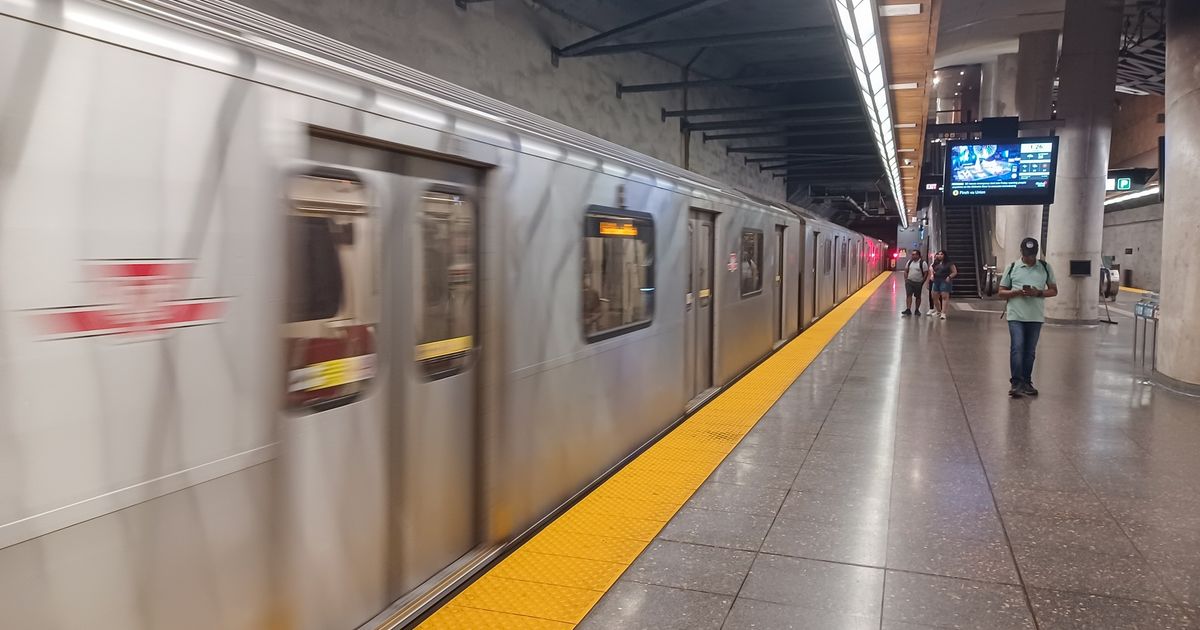An unexpected TTC shutdown lasting several hours on January 22 was just the latest hiccup for a network plagued by a mounting repair backlog, one that will require a staggering 38 full-weekend subway closures in 2025 to address.
The transit agency has battled a laundry list of problems in the last several months, and passenger frustrations are nearing a boiling point. However, there could be relief in sight thanks to a new action plan proposed by TTC Commissioner Josh Matlow and seconded by Chair Jamaal Myers.
The motion titled “Addressing Service Delays on the TTC” will appear before the TTC Board for its first meeting of the year on January 27 and features comprehensive steps to ease the collective pain of public transit users.
A report on the issue explains that “service disruptions on our subways are becoming more and more frequent.”
“The recent suspension of subway service during morning rush hour multiple days in a row has caused significant chaos for transit riders,” the report explains, referring to repeated outages in mid-December that ground commutes to a sudden halt.
“Too many Torontonians have been late for work or school, stuck in trains underground or waiting too long for overcrowded shuttle buses.”
“The causes of these disruptions were varied, including a trespasser on the tracks on Monday, December 9th that interrupted service on Line 1 for an hour and a half, and signal issues that led to the entirety of Line 1 being shut down for an hour in the morning of Wednesday, December 11th.”
The motion stresses that locals are “deeply frustrated with the unreliability of TTC service caused by these service disruptions.”
“We risk losing riders if they cannot count on the transit system to get them to work, school, or appointments on time,” it adds. “We must address this issue seriously to regain the trust of transit users.”
If approved, the motion would see TTC staff engage in an external review of signalling system maintenance and seek ways to improve communication with riders during unplanned service disruptions.
TTC shuts down subway service for ’emergency repairs’ yet againhttps://t.co/YPOk74IgnJ
— blogTO (@blogTO) January 22, 2025
The motion also proposes that the TTC explore ways to make shuttle bus service begin sooner after an outage begins, in hopes of cutting down on those chaotic crowd scenes at stops outside of subway stations.
Another measure the TTC would explore is the feasibility of offering up more alternative options for transit users in the event of outages. Most notably, this strategy could include implementing priority bus lanes to better move commuters during service disruptions.
These moves would undoubtedly improve the TTC’s reputation among riders in the long-term, but people who rely on the transit network are in for a particularly rough 2025 in the nearer-term.
The transit agency will require 38 full-weekend closures this year, accounting for 28 weekends with ten overlapping closures on multiple lines. In addition to these closures, the TTC is also planning 217 early nightly closures across the year, meaning that there will be disruption on the TTC subway network for 293 of the 365 days this year, or over 80 per cent of 2025.
TTC planning a staggering 38 full-weekend subway closures in 2025https://t.co/gaoWBbu2Te
— blogTO (@blogTO) January 20, 2025
This figure doesn’t even account for the unanticipated service disruptions that riders can’t plan around, like the January 22 outage caused by a snapped rail.


